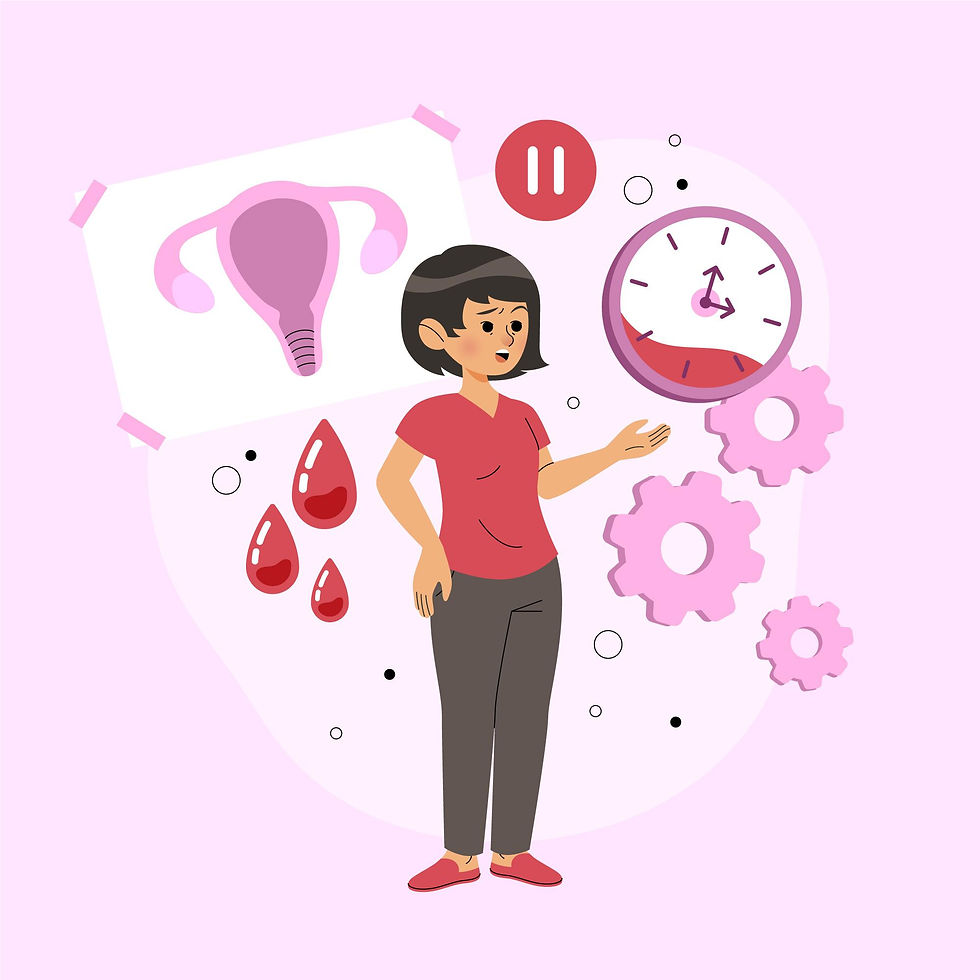Effective Treatment Options for Ovulation Disorders
- Team Rabbit
- Jun 23, 2023
- 2 min read

Ovulation is an important process in a woman's reproductive system, as it includes the release of a mature egg from the ovaries. However, some women experience ovulation disorders, which can seriously affect their fertility and overall reproductive health. In this blog, we will delve into the world of ovulation disorders, exploring their causes, symptoms, and available treatment options.
Treatment Options for Ovulation Disorders:
If you have noticed symptoms of ovulation disorders and are seeking a solution to fulfill your dreams of starting a family, visiting Santaan Fertility is a great choice. Ovulation disorders can significantly impact a woman's ability to conceive, and Santaan Fertility specializes in diagnosing and treating these conditions with expertise and care.
Ovulation disorders can contribute to infertility and difficulties in conceiving. Fortunately, there are several treatment options available to address these disorders and improve the chances of successful ovulation and pregnancy. The specific treatment approach depends on the underlying cause of the ovulation disorder and the individual's unique circumstances. Here are some common treatment options:
Lifestyle management: In some cases, lifestyle modifications can help regulate ovulation. These changes may include maintaining a healthy body weight, managing stress levels, getting regular exercise, and following a balanced diet.
Medications: The most commonly prescribed medication is clomiphene citrate (Clomid), which helps induce ovulation by stimulating the release of hormones that regulate the menstrual cycle. Other medications that may be used include letrozole, metformin (for women with polycystic ovary syndrome), and gonadotropins (injectable hormones).
Ovulation induction: In cases where medications alone are not effective, assisted reproductive technologies (ART) such as intrauterine insemination (IUI) or in vitro fertilization (IVF) may be recommended. These procedures involve monitoring the woman's ovulation cycle and introducing sperm directly into the reproductive tract to increase the chances of fertilization.
Surgery: In certain cases, surgical intervention may be necessary to correct structural abnormalities that are causing ovulation disorders. For example, laparoscopic surgery can be performed to remove ovarian cysts, treat endometriosis, or address tubal obstructions.
Lifestyle and alternative therapies: Some individuals may find benefit from complementary and alternative therapies such as acupuncture, herbal supplements, or dietary changes. While these approaches may not be scientifically proven to treat ovulation disorders, they may offer some additional support and help manage stress levels.
Conclusion:
It is crucial to consult with a reproductive endocrinologist or fertility specialist who can evaluate your situation, diagnose the underlying cause of the ovulation disorder, and recommend the most appropriate treatment options. To know more visit Santaan Fertility, the Best fertility center in Odisha, and get the benefit from our state-of-the-art facilities, advanced diagnostic techniques, and a team of highly skilled reproductive specialists. We possess a deep understanding of the complex factors affecting ovulation and have a track record of successful results for patients with ovulation disorders.



Comments